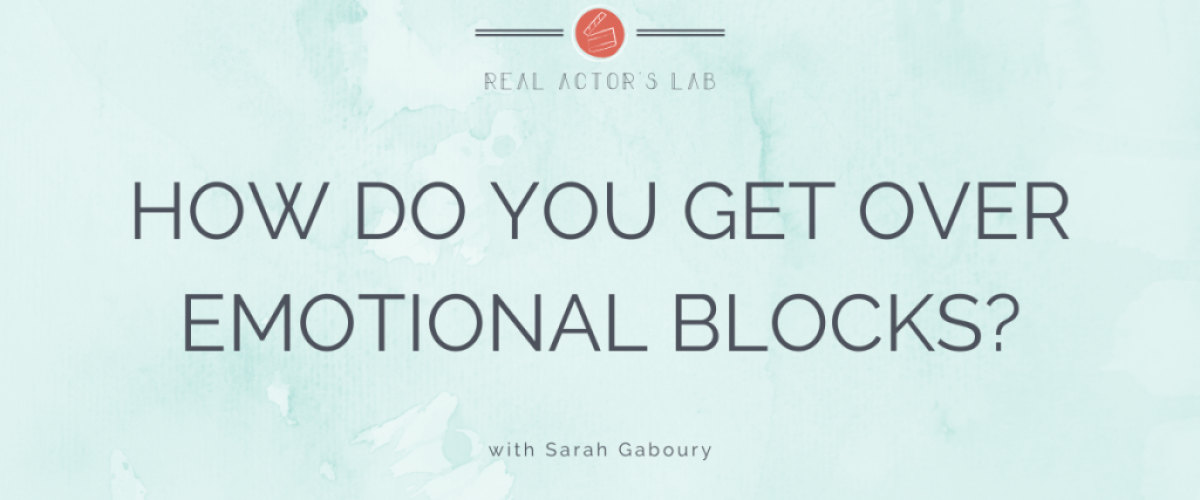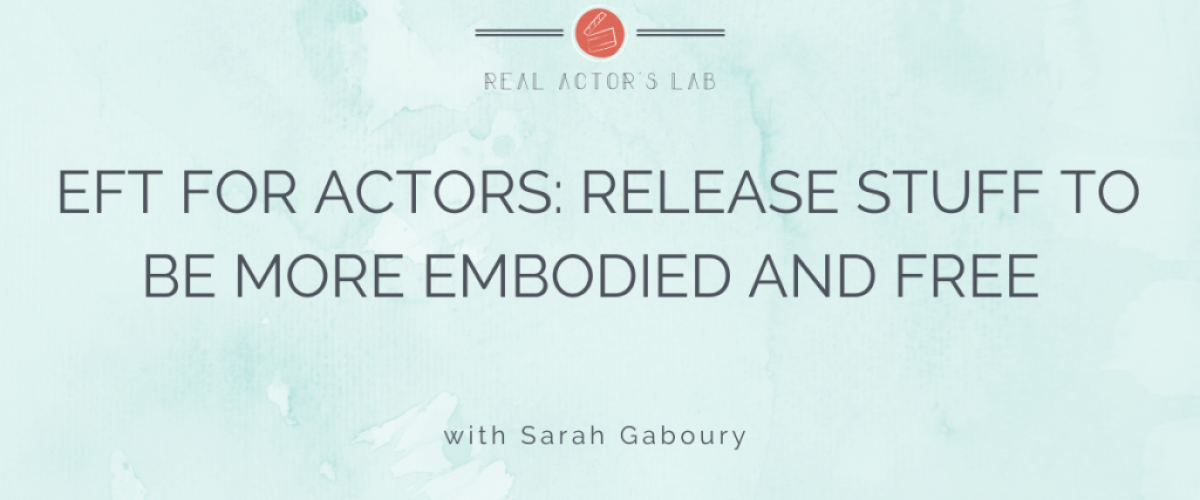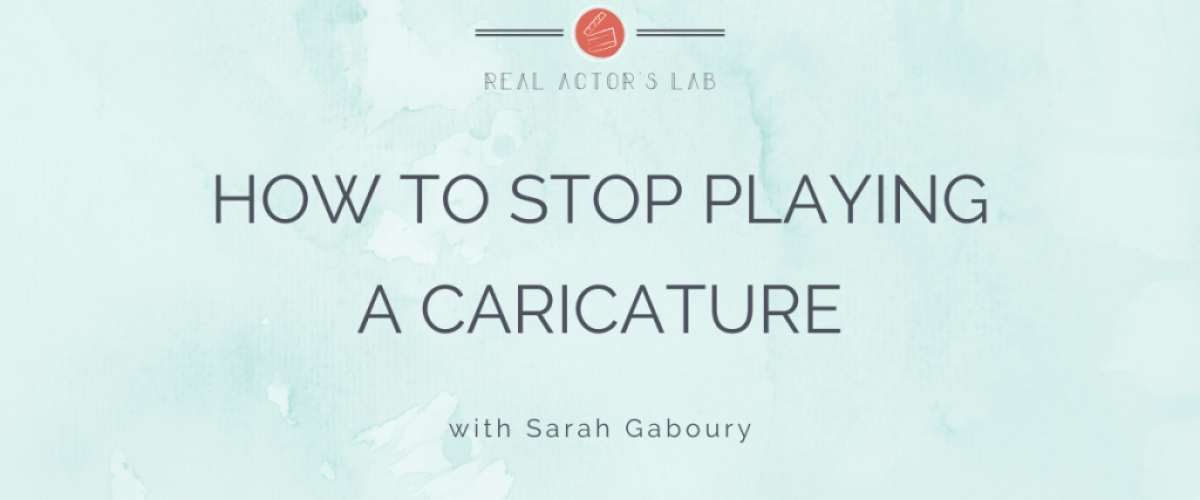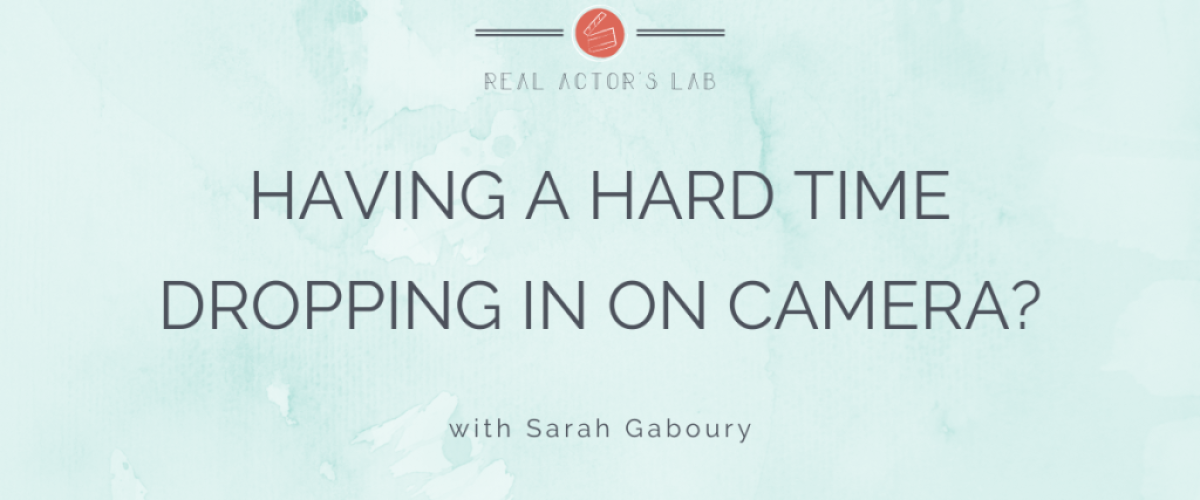How to stop getting stuck on emotional blocks in acting
Do you know what your emotional blocks in acting are?
This is the stuff that prevents you from fully living a scene as the role. That’s what was happening at this particular moment in class.
When this comes up, think of it as your invitation to get into this very challenging (but essential) work to loosen the block’s grip on you. Identifying what your emotional blocks are can give you a place to start.
Do you really struggle when it comes to standing up for yourself? Do you shy away from heartbreak scenes? Do you struggle with vulnerability? That resistance is your guide.
Here are some ways you can work to dissolve resistance / emotional blocks:
- Therapy (if you have access to it) is alway a fantastic option. Some students are using BetterHelp.com and finding it helpful. Some Blue Shield plans in CA offer it for free via TeleDoc. Do some research about what your own insurance covers.
- Write! Set a timer and put pen to paper until it goes off. Stream of consciousness. It’s a purge. When do you first remember feeling resistance in this area? When do you first remember feeling a particular related emotion? Are there any moments from your childhood that feel connected? Journal, journal, journal. When you’re done, burn it. Write any “F-you” letters to people you may need to tell off. Burn those, too.
- Find a breathwork class near you or online. I hate doing it but it has been an incredibly powerful release for me. Students often find themselves getting emotional during sessions, reminding them that it’s safe to do so. I like Brittany Hatcher.
- Get into class! You may have a hard time knowing exactly what you are avoiding in the first place. Plus, a good coach can help you come up with a plan to begin and will hold you accountable. If you’re like me, you may want to run away fast from this work and put it off for years. Don’t. You will stay stuck.
- Remember, it takes time to dismantle emotional blocks so keep at it and have patience with yourself.
I do have some excellent exercises that help you identify which action categories you may be avoiding which we can get into in class or private work so let us know if you need help.
If this feels overwhelming, here’s your reminder that you’re right on time. Take it one baby step at a time. You’ve got this. Drop a comment here on the blog to let us know what your very first baby step will be!
CLASS CLIP TRANSCRIPTION
Sarah: There’s these little things that come up that prevent you from having your impulse… that get a little scary. These are called emotional blocks in acting and I think this probably has something to do with the difficulty playing these strong actions. I don’t know. What do you think?
Student: I don’t know. It’s not even like…it’s not even like I feel like I’m doing it, it’s just my body is doing it’s own…
Sarah: I know, it’s not conscious, it’s just uncomfortable to do things that we don’t normally do. We’re not…the whole point of acting, right, is that we’re trying to not act. We’re trying to live these moments as if they’re really happening to us. And so we’re basically trying to trick our brains into believing that this is real life, and your subconscious, the subconscious Ashley is like, “Don’t do that! It’s not nice!” Right? It’s not safe and it’s not nice and it’s mean and it’s all these things. Which is good! That’s the part of you that protects you.
But part of what we have to do, and that’s part of what this breathwork would be for, is to help us undo some of that stuff, that keeps us stuck and safe. And lets us be more free in our responses, in our authenticity, in our instinct. To learn in your body that it’s okay to stand up and fight back.




